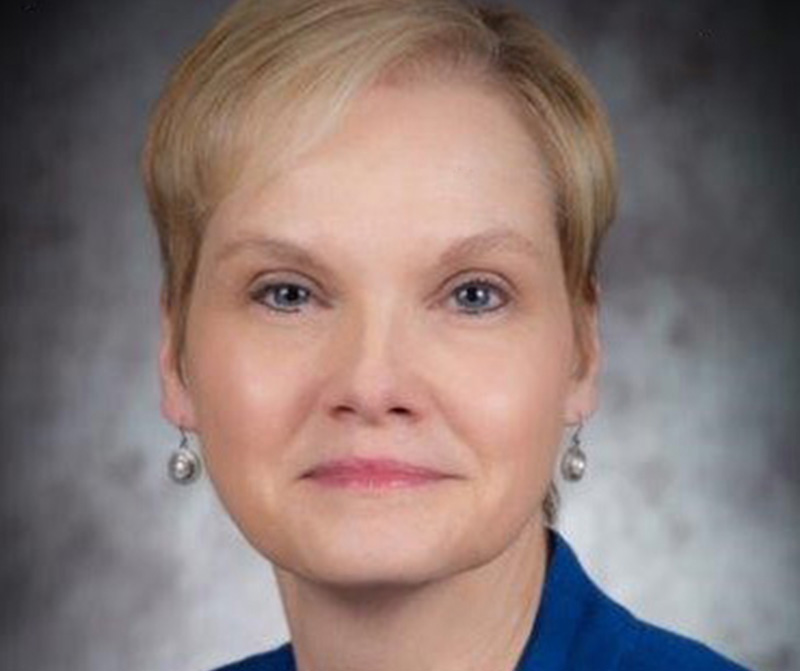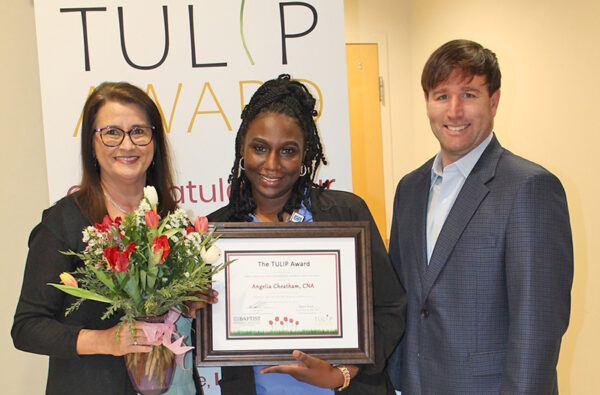Infection preventionists (IPs) have always had an important role in keeping us safe, but during the COVID-19 pandemic their work has become even more essential. The work of IPs has become more challenging than ever, and workloads have increased. The IPs at Baptist are greatly appreciated for their often behind-the-scenes, yet crucial roles. Baptist IPs, we can’t thank you enough!
Marianne Ivie, system director of infection prevention, shares more about the work that IPs do each day to keep patients, families and team members safe. Keep reading to learn more about infection prevention, see images of all the Baptist IPs, and watch the video dedicated to IPs featuring Ivie with Dr. Stephen Threlkeld, Baptist Memorial Health Care’s medical director of infection prevention.
How is the infection prevention team working to make Baptist facilities safer during the pandemic?
Regardless of the type of communicable disease, IPs are always front and center . IPs are involved in every area of the hospital. They move behind the scenes and impact the outcomes of patients every day.
With COVID, we’ve been involved with supply chain processes, PPE selection and training, education development, regulatory compliance and vaccinations. We do rounds looking for PPE compliance and focus on patient and staff safety. We’ve had to investigate COVID cases and exposures, and it’s an incredible workload that’s been added to the IP’s normal plate. In some smaller facilities, IPs wear more than one hat and balance many different priorities.
How has COVID-19 changed the work of infection preventionists?
Oh, double, tripled, quadrupled! Unlike other transmissible diseases that we understand well, COVID is dynamic. It was a novel virus that we didn’t know. Things can change rapidly. It’s a challenge for IPs to keep themselves and staff informed. We also educate the staff and explain why recommendations and guidance keep changing. Because of the magnitude of COVID, it literally touches every team member and patient.
Has the Omicron variant changed anything yet?
No, we don’t have enough information about the Omicron variant yet. We’re watching our numbers closely. Right now, Delta is still in our area and numbers are slowly rising again, related to the season, with people going inside more. Many people are still unvaccinated, so we expect some seasonal spread of COVID. We are well prepared. We’ve been through several surges now. We’re ready to respond if we need to.
What are some of the biggest challenges in the world of infection prevention?
Resources and stress. Our staff does an outstanding job, but normal processes are challenging during a crisis like the pandemic. With infection prevention, we can always use more staff. With the increase in workload, it’s been challenging. There are so many competing priorities because normal work continues while COVID is present. We focus on keeping IPs, nurses and all staff supported and upbeat.
Besides COVID-19, what other health threats are always on the minds of the infection prevention team?
Methicillin-resistant Staphylococcus aureus (MRSA) and all types of drug-resistant organisms are top of mind. We’ve seen an uptick in them during the pandemic, partly because COVID patients are very vulnerable to other types of infections. Also, we still have a good bit of tuberculosis in this region, so that’s always on our minds. We also do the normal surveillance for hospital-associated infections and publicly reported communicable diseases.
What training is required to become an IP?
Our professional organization, the Association for Professionals in Infection Control and Epidemiology (APIC), offers courses designed for IPs, and the state departments of health conduct training. It all leads to Certification in Infection Prevention and Control, (CIC certification). IPs have a unique knowledge base and skill set. It may take two to three years to master the knowledge to pass the rigorous exam required for certification. At Baptist, our IPs are registered nurses, and the senior IPs assist with training and mentoring new staff members.
How can Baptist team members help with infection prevention?
Infection prevention is everybody’s business. It takes each of us each day following our infection prevention guidelines to break the chain of transmission. All of us have a role.
How can community members help make things easier for hospitals?
The biggest favor the community can do to help health care providers is to do everything they can to prevent contracting COVID. Get vaccinated. Practice good hand hygiene, social distancing and wear a mask.
Also, it would help if community members got their flu shots. Flu patients can potentially jam the system. We’re seeing an uptick in flu, and patients present with very similar symptoms to COVID. There’s a tremendous amount of screening and testing that must be done when flu patients visit hospitals. We triage to determine what is going on.
Is there anything you’d like to add?
It’s the job of the infection prevention team to look at the big picture and keep patients, families and staff safe every day. IPs touch every aspect of the hospital. Their value is immeasurable, and I believe they’re the moral compass of the hospital.





































